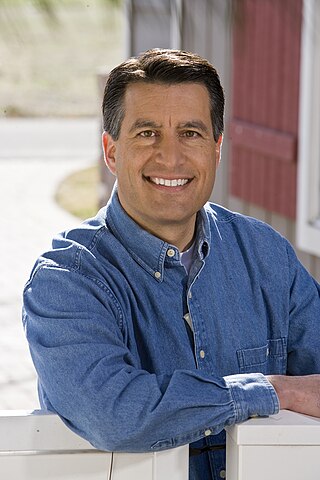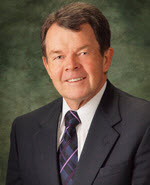Courts

Supreme Court
The Supreme Court of Nevada is the state supreme court, the state's highest appellate court. The Supreme Court consists of seven justices; the longest-serving member is the Chief Justice, and the rest are associate justices. [1] [2] Each justice is elected statewide for a six-year term. [1]
The six associate justices are divided into two panels of three, with one based in Carson City and the other in Las Vegas. [3] Most cases before the Court are heard and decided by one of the panels; cases with significant precedential or public policy implications are heard en banc by all seven justices. [4] [5]
Court of Appeals
The Court of Appeals is the state's intermediate appellate court. It consists of a Chief Judge and two associate judges. [6] Each judge is elected statewide for a six-year term. [7] The Court of Appeals follows a deflective, or "push-down", model, in which cases are assigned to it by the Supreme Court, rather than being received directly on appeal from the lower courts. [8]

District courts
The district courts are Nevada's trial courts of general jurisdiction; they also serve as the appellate court for cases decided in the justice courts and municipal courts. [9] [10] The state is divided into eleven judicial districts, each of which comprises one to three of Nevada's sixteen counties and one independent city. [11] Each district has a court, with a number of judges ranging from 1 to 52. [12] Each judge is elected by a district-wide vote for a six-year term. [13]
Justice courts
Each of Nevada's counties and its independent city are divided into one or more townships, [14] [15] and each township has a justice court. [16] The justice courts are courts of limited jurisdiction that hear only minor cases; in general, they hear misdemeanor cases (including traffic tickets), [a] and civil cases involving $15,000 or less (including evictions and small claims cases). [17] [18] They may also hold probable cause hearings for felony and gross misdemeanor cases. [19]
There are 40 justice courts in the state. [20] Each justice court consists of a number of justices of the peace, as determined by a formula based on the township's population. [16] Each justice of the peace is elected to a six-year term by voters in the township. [16]
Municipal courts
Each incorporated city in Nevada has a municipal court. [21] Like the justice courts, the municipal courts have limited jurisdiction; in general, they hear cases involving civil and misdemeanor violations of city ordinances, [a] nuisance abatement cases, and cases involving $2,500 or less where the city is the plaintiff. [22] The municipal court is presided over by a municipal judge [21] (or, as provided by some city charters, multiple judges [23] ). Judges may be either elected by the city's voters, or appointed by the mayor with consent of the city council, as determined by city ordinance. [24] The term of elected judges is set by the city charter or ordinances. [24] In some cities, instead of electing or appointing a judge, the applicable justice of the peace serves ex officio as the municipal judge. [24]







